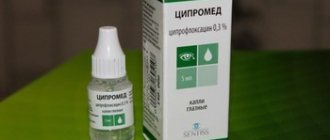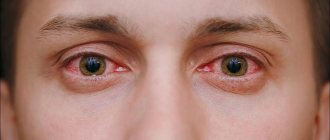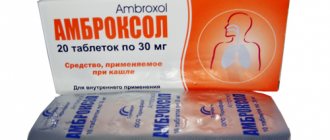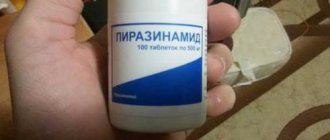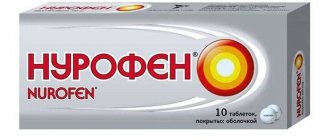Tsipromed is an ear drop used by modern otolaryngologists to treat otitis media and other ear ailments. Their use allows you to quickly eliminate pain and stop inflammatory processes in the tissues of the auditory organ. Tsipromed is one of the low-toxic drugs approved for use by different categories of patients. Like any medicine, it has a number of contraindications and can cause adverse reactions. To minimize the negative effects of ear drops on the body, it is recommended to start treatment with them only after consulting a doctor.
Composition and specific action of this drug
Tsipromed ear drops are affordable and sold in any pharmacy. You can purchase them without a doctor's prescription. Before starting to use the drug, the patient should carefully read the instructions for use, which are included with each bottle of drops.
The active ingredient in the drops is the antibiotic ciprofloxacin, a fluoroquinolone. It is contained in their composition in the form of hydrochloride. In addition to ciprofloxacin, the drug includes sodium chloride, sodium hydroxide, benzalkonium chloride, lactic acid, sodium edetate and water for injection.
Tsipromed ear drops are a yellowish or colorless liquid, which is bottled in 10 ml plastic bottles. They are placed in a small cardboard package and additionally supplied with instructions for use. In one bottle of the drug, the amount of active substance is 0.3% (three milligrams per milliliter).
Ciprofloxacin in Cipromed ear drops is one of the antibiotics with a wide spectrum of influence. This allows you to use drops for the treatment of inflammatory processes in the hearing organs of various origins. The medicine is also actively used in the fight against a number of eye diseases.
The drug disrupts protein production in bacterial cells, thereby inhibiting the formation of DNA molecules and components of the bacterial cell wall. As a result, the bacterial pathogenic flora dies (the so-called bactericidal effect).
Resistance of microorganisms to the active substance develops slowly, and this explains the effectiveness of the drug. "Tsipromed", in addition, is active against microorganisms that are resistant to the following antibiotics: cephalosporins, penicillins, tetracyclines.
The drug functions locally and is almost not absorbed into the bloodstream.
Contraindications
The instructions for Tsipromed ear drops state that not all categories of patients can use them. You should not resort to treating ear diseases with this medicine if:
- the patient has hypersensitivity to ciprofloxacin and other components in the composition;
- breastfeeding;
- pregnancy.
Tsipromed for children
According to the instructions, the product can be used to treat a child over 1 year old. The recommended age for using Tsipromed is 15 years. The dosage of the drug is the same as for adults. For otitis, instill 4-5 drops 3 times a day, and for conjunctivitis - 2 drops 2-3 times a day. If a burning sensation, headache or other side effects occur, the medication should be discontinued and the child should be shown to a doctor.
- How to crochet a washcloth for beginners
- 4 ways to cook delicious sausages: cooking recipes
- Homemade cucumber face lotion
Careful use
Particular caution is required when using Tsipromed ear drops in pediatrics. The manufacturer does not recommend prescribing the drug to young patients less than one year old.
Treatment of patients under fifteen years of age requires constant supervision by a specialist. The duration and dosage of ear drops is determined by the doctor. Self-medication with a drug can aggravate the pathology and worsen the patient’s health.
What else does the instructions for use of Tsipromed ear drops tell us?
Adverse reaction
The manufacturer claims that the drug is generally well tolerated. But sometimes the following side reaction of the body to taking the drug Tsipromed can be observed:
- allergic reaction - manifested by itching, burning, redness of the epidermis, hives and rash;
- nausea, vomiting;
- in rare cases - swelling of the eyelids, photophobia, lacrimation, sensation of the presence of a foreign body in the eye, unpleasant metallic taste in the mouth immediately after the instillation procedure;
- decreased visual acuity and hearing;
- long-term use of the medication can provoke the development of superinfection provoked by pathogenic and opportunistic fungal microorganisms.
Adverse reactions from the ears and eyes are most often observed when the dosage regimen and doctor’s prescriptions regarding the duration of taking the medication are not followed. Therefore, it is extremely important to follow all the specialist’s recommendations.
If an adverse reaction develops, it is recommended to immediately stop taking the drug and consult a specialist for advice on a possible change in medication.
Special instructions and expected side effects
The use of the drug must be carried out in compliance with specific requirements. Before using the drug, the patient needs to perform hygiene of the ear canals using sterile cotton wool. Before instillation, the drug needs to be warmed up a little and held in warm hands for 3-5 minutes.
After using the medicine, it is recommended to close the ear canals for 10-15 minutes with dry cotton pads. This prevents droplets from leaking out and keeps the sore ears warm.
Typically, treatment with Tsipromed ear drops occurs without side effects. In rare cases, its use may cause the patient to experience a burning or itching sensation in the ear canal. Such symptoms appear immediately after the procedure and disappear on their own within a few minutes.
If Tsipromed accidentally enters the digestive tract, the patient may experience symptoms that are characteristic of food poisoning (epigastric pain, nausea, intestinal upset, vomiting, headaches). In this case, first aid is based on urgent gastric lavage and mandatory contact with a qualified specialist.
Mode of application
The product must not be used internally - only externally. Before the procedure, the ear canal is cleaned of external wax and pus (if any). To instill drops, you need to pull your earlobe back and down and squeeze out 5 drops. Perform the procedure 3 times a day. The duration is determined by the doctor. To prevent the product from leaking out of the ear, you can cover it with a cotton wool pad.
The eye product is instilled 1 drop under the lower eyelid. The duration of use and the number of procedures per day depends on the disease and the presence of complications:
- for acute dacryocystitis, drops are used up to 10 times a day, for chronic dacryocystitis, up to 8 times;
- for acute conjunctivitis, blepharitis up to 8 times a day for 10-14 days;
- for anterior uveitis up to 12 times a day, until symptoms subside;
- for keratitis up to 5 times a day for 1 month.
To prevent the development of inflammation, after surgical treatment, drops are prescribed up to 6 times a day during the entire rehabilitation period (from 4 days to 1 month).
What else do you need to know?
The use of Tsipromed ear drops is not advisable in the treatment of diseases of fungal and viral origin.
You should not use the medicine or its analogues for more than a month after opening the bottle.
Alcohol consumption is prohibited during treatment.
You cannot instill a cold solution into the ear - the liquid is first warmed up to body temperature (to do this, you need to hold the bottle in your hand for several minutes).
It is forbidden to interrupt the treatment course prescribed by a specialist, even if the symptoms disappeared on the second day of therapy. Otherwise, the inflammation process will resume in the near future.
If treatment is carried out with several types of drops, at least a five-minute break must be maintained between procedures.
Analogs
This medicine has an analogue called “Ciloxan”. The drug coincides with ear drops according to two criteria:
- active ingredients;
- group.
Used for bacterial diseases of the organs of vision (meibomitis, dacryocystitis, blepharitis, keratitis and conjunctivitis).
The drug is contraindicated in cases of hypersensitivity, mental disorders of various origins, cerebral atherosclerosis, epileptic seizures, renal failure and minors.
Side effects are as follows: possible allergic reactions, lacrimation, fear of light. Produced as a solution of ciprofloxacin 0.3%.
In addition to it, you can find other analogues of the drug in pharmacies. For example, Ciprofloxacin. Used for inflammatory diseases and infections of the respiratory system, tissues of the ears and eyes, skin; infectious diseases of the urinary system and kidneys; bacterial diseases of the musculoskeletal system; septicopyemia; peritonitis.
Other drugs: Cipropharm; "Betaziprol"; Quipro.
A cheaper analogue is the drug “Ciprofloxacin”, which is produced in Romania. Its cost is about 35 rubles.
"Tsipromed" also has many analogues: "Quintor-25"; "Medociprin"; "Siflox"; "Alcipro"; "Ificipro"; "Ciprinol"; "Quintor"; "Zindolin 250"; "Liprokhin"; "Aquacipro"; "Betaziprol"; "Ciprex"; "Ciproquin"; "Tsiprolet"; "Arflox"; "Tsiprosin"; "Tatsip"; "Tsiprosan"; "Ciprofloxacin bufus."
Reviews of use in adults
Valeria, 22 years old, Sochi: I often drive with the window open, apparently because of this my left ear began to hurt, there was a feeling of stuffiness and some kind of discharge from it with an unpleasant odor. I went to the doctor and it turned out to be purulent otitis media of the external ear. Tsipromed drops were prescribed. On the third day of use, my hearing returned to normal, the congestion disappeared, there was no discharge, and I stopped dripping, although I had to use it for 7 days. But a week later the symptoms returned, I had to go back to the drops, but I’ve already been using the drops for a week, and it’s been a year since otitis media has appeared.
Anastasia, 35 years old, Perm: I have been suffering from chronic otitis for a long time, it constantly gets worse, especially in winter. I tried a lot of products and settled on Tsipromed. It very quickly reduces swelling in the ear, which causes congestion and pain. Personally, I don't experience any side effects. I even put these drops in my nose when I have a runny nose, and they also help a lot.
Artem, 32 years old, Krasnodar: Two years ago I suffered an injury to my eyelid at work. The next day inflammation began, the eye was swollen, red and very painful. There was no opportunity to go to the doctor, I bought Tsipromed on the recommendation of a pharmacist at the pharmacy. The drops helped, it became easier on the second day.
Tsipromed is an effective antibiotic, as it has an extensive bactericidal effect. Destroys the pathogen at rest and during the period of active reproduction, when disease symptoms develop. Drops are produced in two types - for the ears and for the eyes. The drug has an affordable price and is sold without a prescription.
Reviews of ear drops "Tsipromed"
This is a very effective remedy for the treatment of acute otitis in children and adults; it is better to combine it with antibacterial medications; it can be used after barotrauma, trauma and perforation of the eardrum. It has an affordable price and good quality.
Patients say that ENT doctors prescribe various ear drops in clinics, but the only remedy that saves when persistent otitis occurs is Tsipromed. It is used both as eye and ear drops.
The drug is effective and good, it contains an antibiotic, it is enough to instill it for two days, and the otitis media will go away. In addition, patients do not experience side effects during treatment, for which they are grateful to the manufacturer.
Users also note the importance of pre-warming the bottle of product in hand and the correct frequency and dosage. They remain satisfied with the effect of the medicine, as a result, after 5-6 days the pain and ear congestion disappear.
The drug helps children. Thus, with ear congestion against the background of a purulent runny nose, several days of instilling Tsipromed helped get rid of the pathology. Parents recommend the medicine as affordable and effective.
Thus, reviews of ear drops are mostly positive. Users note the speed of action of the drug even when treatment with other medications did not bring the expected result. Patients consider the disadvantages of the drug to be side effects in the form of itching and irritation in the ear canal, and in some cases dizziness is possible.
Indications for use
Drops are prescribed for the treatment of inflammatory diseases of the organs of hearing and vision, and also as a prophylactic agent to prevent infection of organs during injury. Indications for use in otorhinolaryngology are:
- acute, chronic external otitis media;
- infectious complications after surgery;
- acute and chronic otitis media;
- prevention of infectious otitis when removing foreign bodies from the ear canal;
- syringitis.
Ophthalmologists prescribe Tsipromed eye drops for infectious and inflammatory pathologies of the eyes and their appendages caused by flora sensitive to Tsipromed:
- anterior uveitis;
- keratitis;
- conjunctivitis in acute and subacute forms;
- blepharitis and other eyelid pathologies;
- dacryocystitis.
Drops are used as a prophylactic agent in preparation for surgery (and after it) on the eyes and ears.

